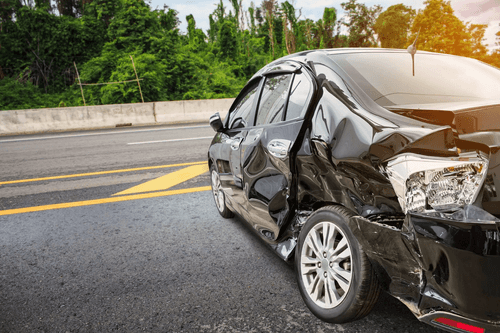Introduction:
Car accidents are tragic events that can result in physical injuries, property damage, and even loss of life. While these immediate consequences are evident, there is a hidden impact that extends far beyond the visible damage. This blog will delve into the often-overlooked effects of car accidents, exploring the emotional, psychological, and financial repercussions that can haunt individuals and communities long after the wreckage is cleared.
Emotional Toll:
Car accidents can leave lasting emotional scars on survivors and witnesses alike. The sudden and traumatic nature of these incidents can lead to post-traumatic stress disorder (PTSD), anxiety, depression, and other mental health challenges. Individuals involved in accidents may experience vivid flashbacks, nightmares, or panic attacks related to the event. The emotional impact can be particularly severe for those who have lost loved ones in car accidents, leaving them grappling with grief and bereavement.
Psychological Consequences:
The psychological impact of car accidents can be far-reaching. Survivors may struggle with a loss of confidence, fear of driving or being a passenger in a vehicle, and a heightened sense of vulnerability. Even a minor accident can trigger a sense of unease and hypervigilance on the road. These psychological consequences can significantly impact an individual’s quality of life, relationships, and daily activities.
Disruption of Daily Life and Mobility
Car accidents can disrupt the daily lives of those involved, often leading to a loss of independence and mobility. Injuries sustained in accidents may require prolonged medical treatments, rehabilitation, and physical therapy, preventing individuals from carrying out their regular activities. The need for transportation alternatives, such as relying on public transit or others for assistance, can add further strain and inconvenience.
Relationships and Social Impact
Car accidents can strain relationships and have a profound impact on social interactions. Families and friends of accident victims may experience heightened stress as they support their loved ones through recovery. In some cases, accidents can lead to permanent disabilities, altering the dynamics within families and requiring long-term care. The emotional toll can also affect personal relationships, causing strain, guilt, and even isolation.
Societal Costs and Burden
Beyond the individual level, car accidents impose a substantial burden on society as a whole. Healthcare systems must allocate resources to treat accident-related injuries, which can strain limited capacities. Emergency response teams, law enforcement agencies, and healthcare providers also bear the burden of increased workload and demand. Additionally, traffic congestion resulting from accidents can lead to productivity losses, wasted fuel, and increased greenhouse gas emissions.
Conclusion
While car accidents are commonly associated with physical injuries and property damage, it is important to recognize and address their hidden impact. The emotional trauma, financial burdens, disrupted livelihoods, strained relationships, and societal consequences extend far beyond the immediate aftermath of a collision. Efforts should be made to provide comprehensive support and resources to those affected by car accidents, including access to mental health services, financial assistance programs, and community support systems. Additionally, focusing on preventive measures, such as improved infrastructure, stricter traffic regulations, and enhanced driver education, can help reduce the occurrence of car accidents and mitigate their hidden impact on individuals and society as a whole.

